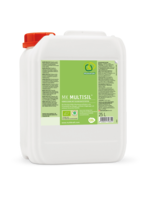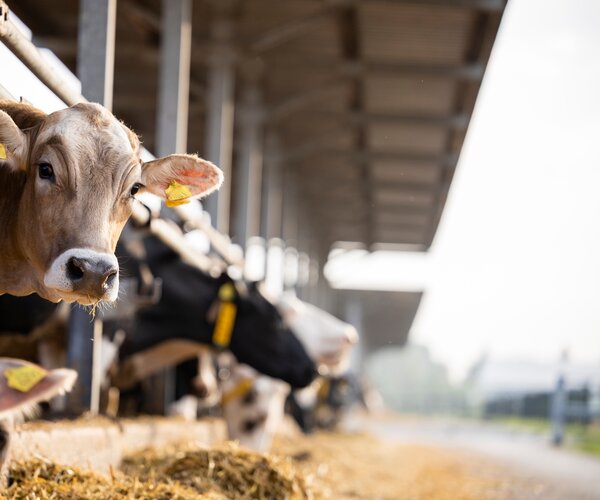
Effective aid for grass, maize grain and wholemeal silage
The silage additive MK Multisil promotes optimum fermentation of the silage and improves silage quality, as three farmers from Upper Austria report.

In contrast to homofermentative products, which only produce lactic acid, Effective Microorganisms work heterofermentatively. They produce several metabolic products, including acetic and propionic acid, probandiol and probanol. MK Multisil promotes rapid lactic acid formation, increasing the content by 50 %. In addition, MK Multisil accelerates the pH value reduction. Specialist studies show that these factors also significantly improve aerobic stability. This in turn means increased stability against secondary fermentation. All in all, the result is high-quality, flavoursome and energy-rich silage. And without a great deal of effort.
In contrast to homofermentative products, which only produce lactic acid, Effective Microorganisms work heterofermentatively. They produce several metabolic products, including acetic and propionic acid, probandiol and probanol. MK Multisil promotes rapid lactic acid formation, increasing the content by 50 %. In addition, MK Multisil accelerates the pH value reduction. Specialist studies show that these factors also significantly improve aerobic stability. This in turn means increased stability against secondary fermentation. All in all, the result is high-quality, flavoursome and energy-rich silage. And without a great deal of effort.
Grass silage
Christoph Angermair regularly uses MK Multisil for grass silage. He runs a dairy farm in Taufkirchen an der Trattnach with 58 hectares and around 60 dairy cows.
"I mount the Multikraft metering hopper on the back of the loader wagon. The grass is sprayed directly with MK Multisil via the rotor when it is picked up. I refill the hopper after about three runs. That's all there is to it. Then the bacteria do their work." He unloads the silage into the silage clamp, compacts it well and covers it airtight with tarpaulins. Compaction and airtightness are also extremely important in the production of silage bales. In the silo, the silage's own weight provides additional compaction.
"Treatment with MK Multisil optimises the fermentation process. The big advantage is also that no reheating occurs." Reheating would lead to energy losses and feed intake would be reduced as a result. Overall, Christoph Angermair is extremely satisfied with the Multikraft products: ‘I get very satisfactory yields with the Multikraft products. The plants and animals are more vigorous and healthier. Since we started using FKE, we have also achieved very good cell counts in the milk,’ summarises Angermair.
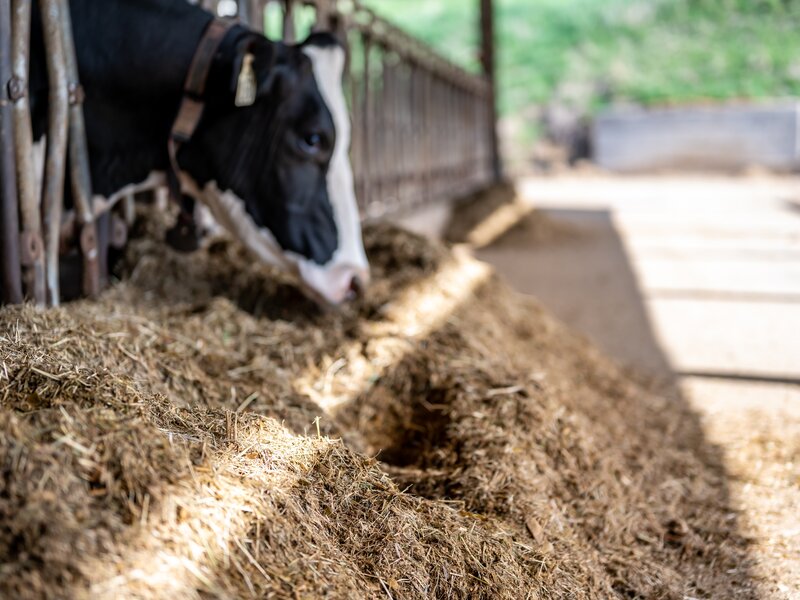
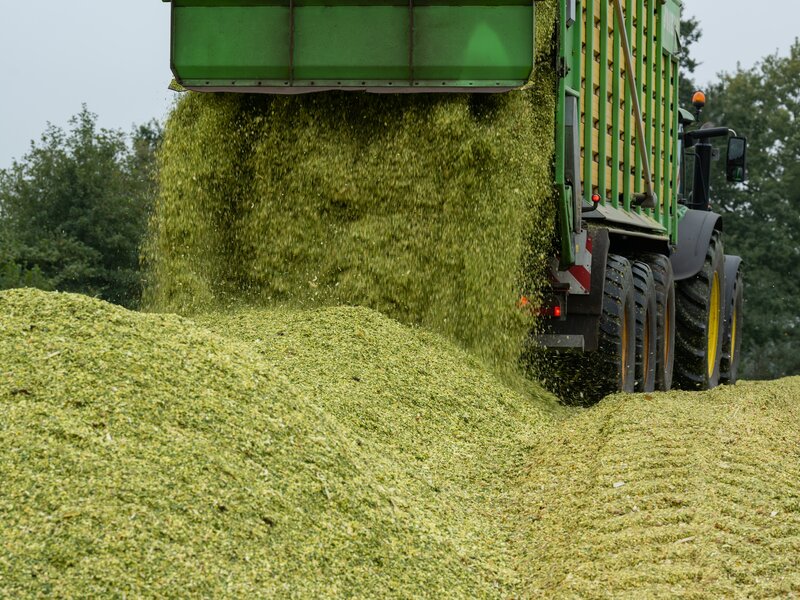
Maize grain silage
In Schlierbach, Günther Huemer runs his 16-hectare farm with 230 pig fattening places. Once a fattening cycle is complete, the barn is filled with new piglets. "If I didn't have any pigs in the barn for a week or two and therefore didn't have a high silo, the existing silage would start to go mouldy. This was a big problem, especially in midsummer. I am so fascinated by MK Multisil because no mould forms at all,’ says the farmer. The maize kernels are harvested with 30-35% moisture and ground immediately during the harvest. During grinding, one litre of MK Multisil is dosed into the mill perm3 of maize. ‘I simply built the dosing unit myself from a 10-litre bucket and a gate valve.’
The maize is stored in two high silos. It is also preserved by fermentation and the resulting metabolic products also ensure better stability. Günther Huemer is also enthusiastic: ‘If there is no removal from the silo for one or two weeks, the feed remains of high quality without mould growth.’
Wholemeal silage
Andreas Mittermayr's farm in Gunskirchen covers 40 hectares of arable land. So far, around 500 pigs have been fed with the wholemeal silage. The high silo is 14 metres high and has a capacity of around 300m3. After harvesting, the maize is pulled up by elevator and stored in the silo. ‘When harvesting, it is important that the grain remains whole and that there is little broken grain.’
As soon as the maize crop has been discharged, Mittermayr adds MK Multisil from a container just before the elevator and fills the freshly harvested maize grains into the high silo. Oxygen is breathed in the silo and CO2 is released. Preservation therefore takes place here through theformation of CO2 . The gas is heavier than oxygen, settles on the maize and preserves it. The rapidformation of CO2 inhibits the development of harmful bacteria and the wholemeal silage remains stable.
Andreas Mittermayr's farm in Gunskirchen covers 40 hectares of arable land. So far, around 500 pigs have been fed with the wholemeal silage. The high silo is 14 metres high and has a capacity of around 300m3. After harvesting, the maize is pulled up by elevator and stored in the silo. ‘When harvesting, it is important that the grain remains whole and that there is little broken grain.’
As soon as the maize crop has been discharged, Mittermayr adds MK Multisil from a container just before the elevator and fills the freshly harvested maize grains into the high silo. Oxygen is breathed in the silo and CO2 is released. Preservation therefore takes place here through theformation of CO2 . The gas is heavier than oxygen, settles on the maize and preserves it. The rapidformation of CO2 inhibits the development of harmful bacteria and the wholemeal silage remains stable.

Many horticultural businesses and their customers are interested in preventative, plant-strengthening products, such as those from Multikraft. Frank Korting from the Rhineland-Palatinate Rural Service Centre in Germany has done some research and reports on his findings.
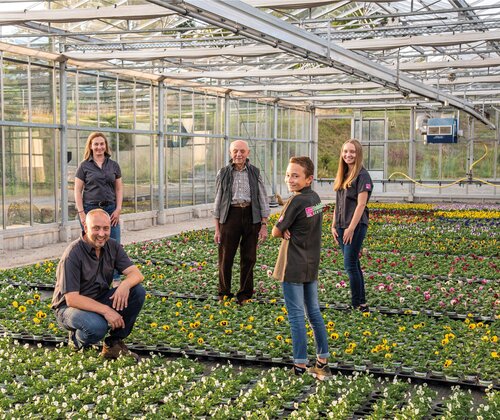
Since January 2019, the Steinhilber nursery in Neustadt an der Waldnaab in Bavaria has been working consistently without pesticides. Changes in crop management, the use of beneficial organisms and the Multikraft biostimulant are crucial to success.
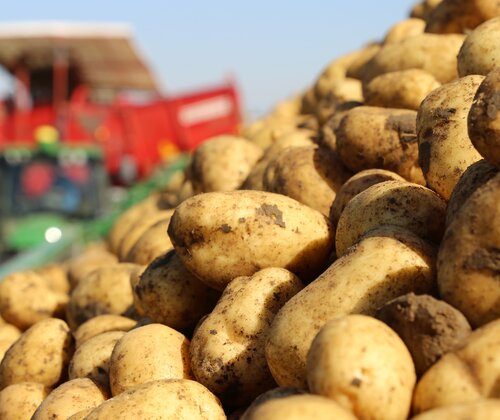
Kurt Kirchmayr from Pupping is a founding member of the Eferdinger Landl potato/vegetable group, which acts as a direct supplier for Billa, Spar and Hofer. They cannot afford crop failures. He has been successfully experimenting with the Multikraft system on his potato fields for two years. The 2023 season brought a harvest increase of around 4.5 tonnes per hectare - an impressive increase of around ten per cent.
